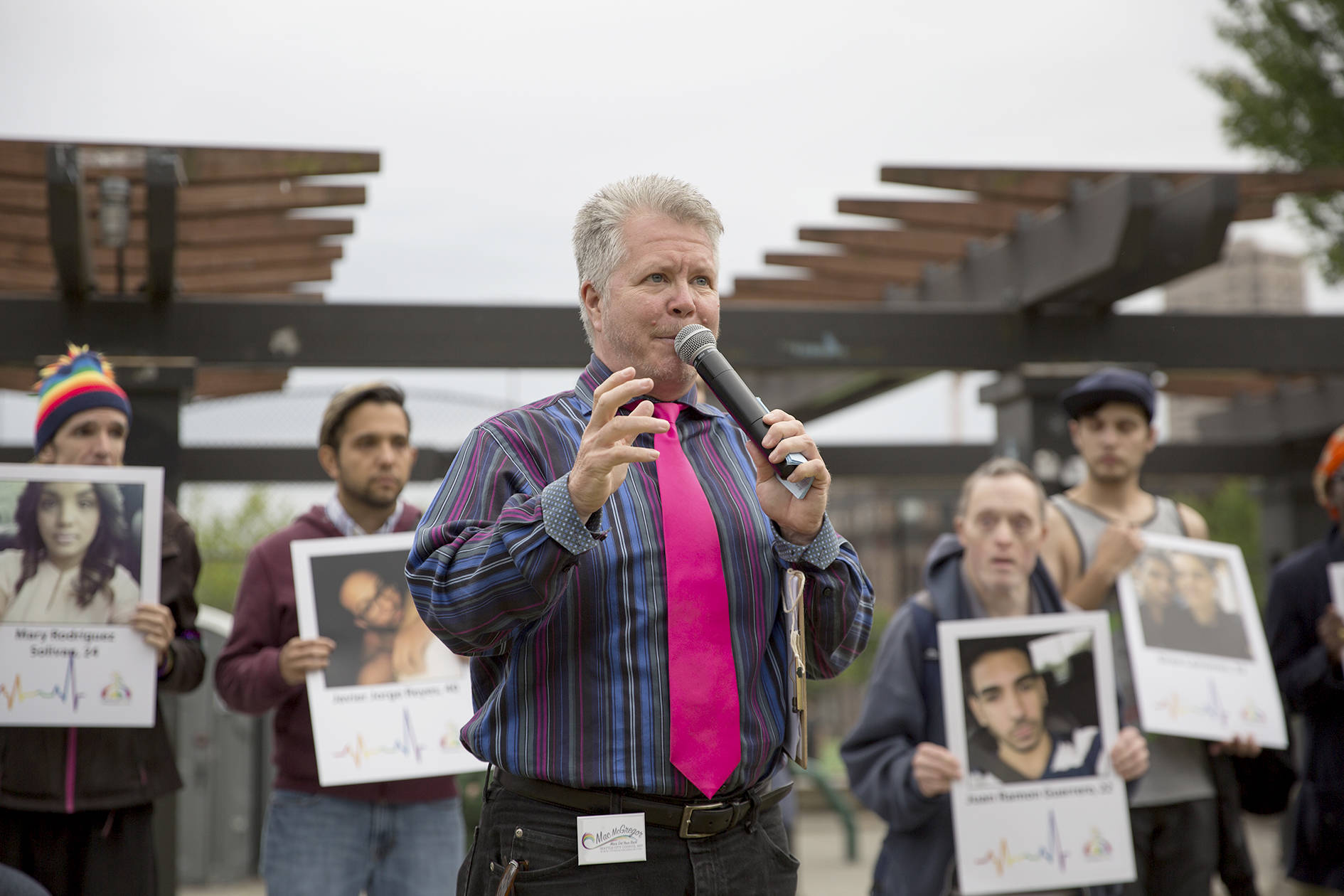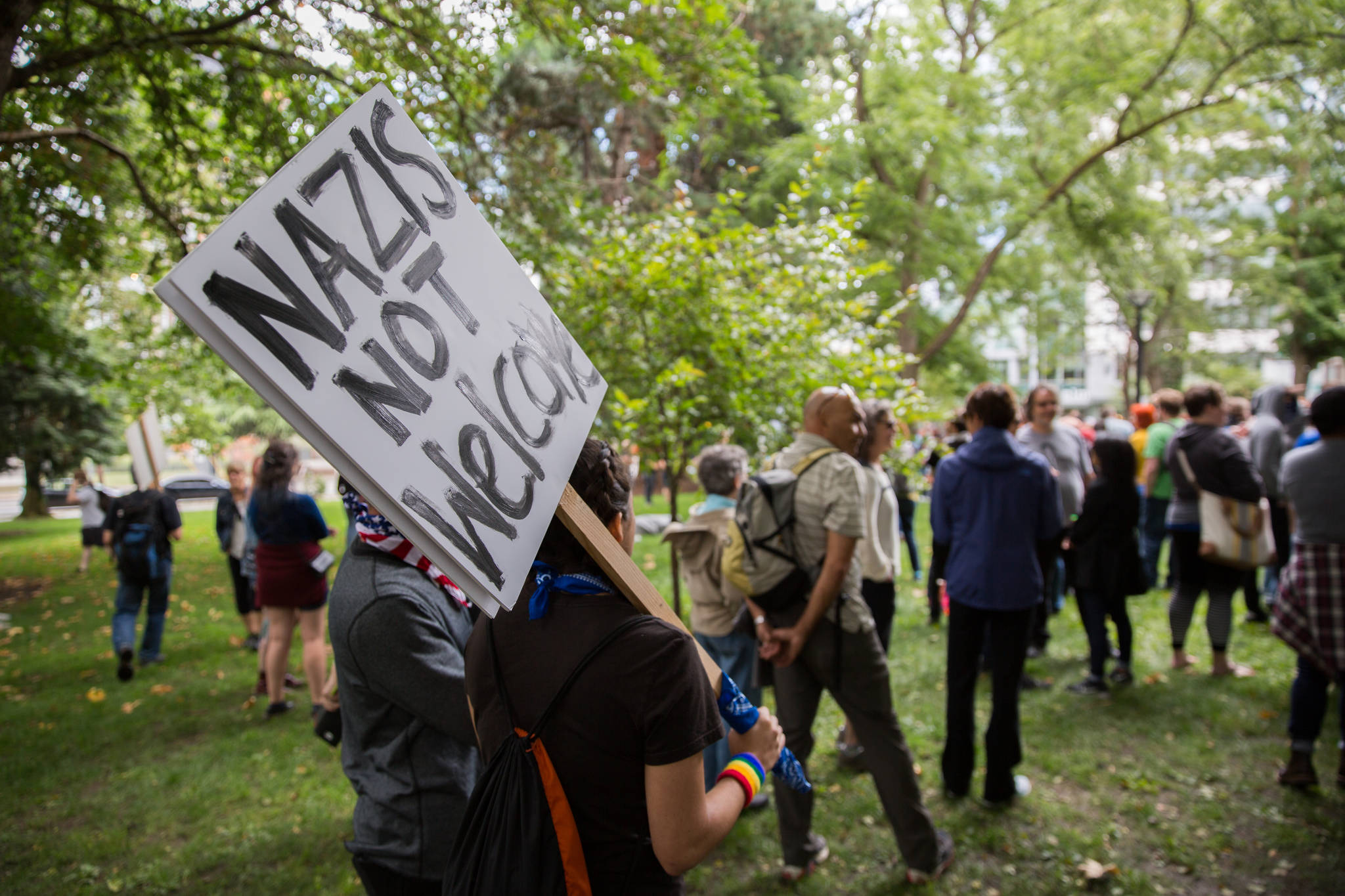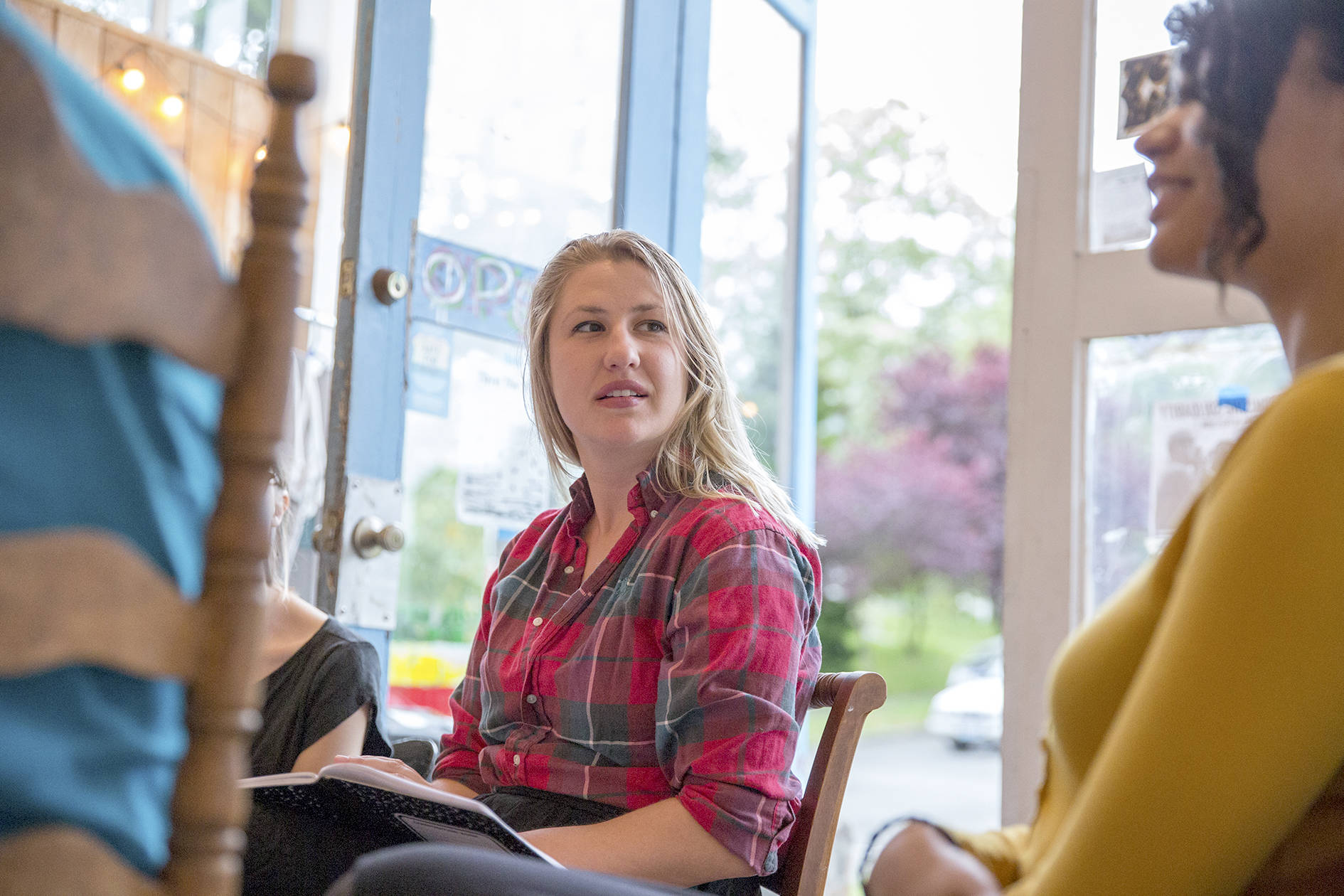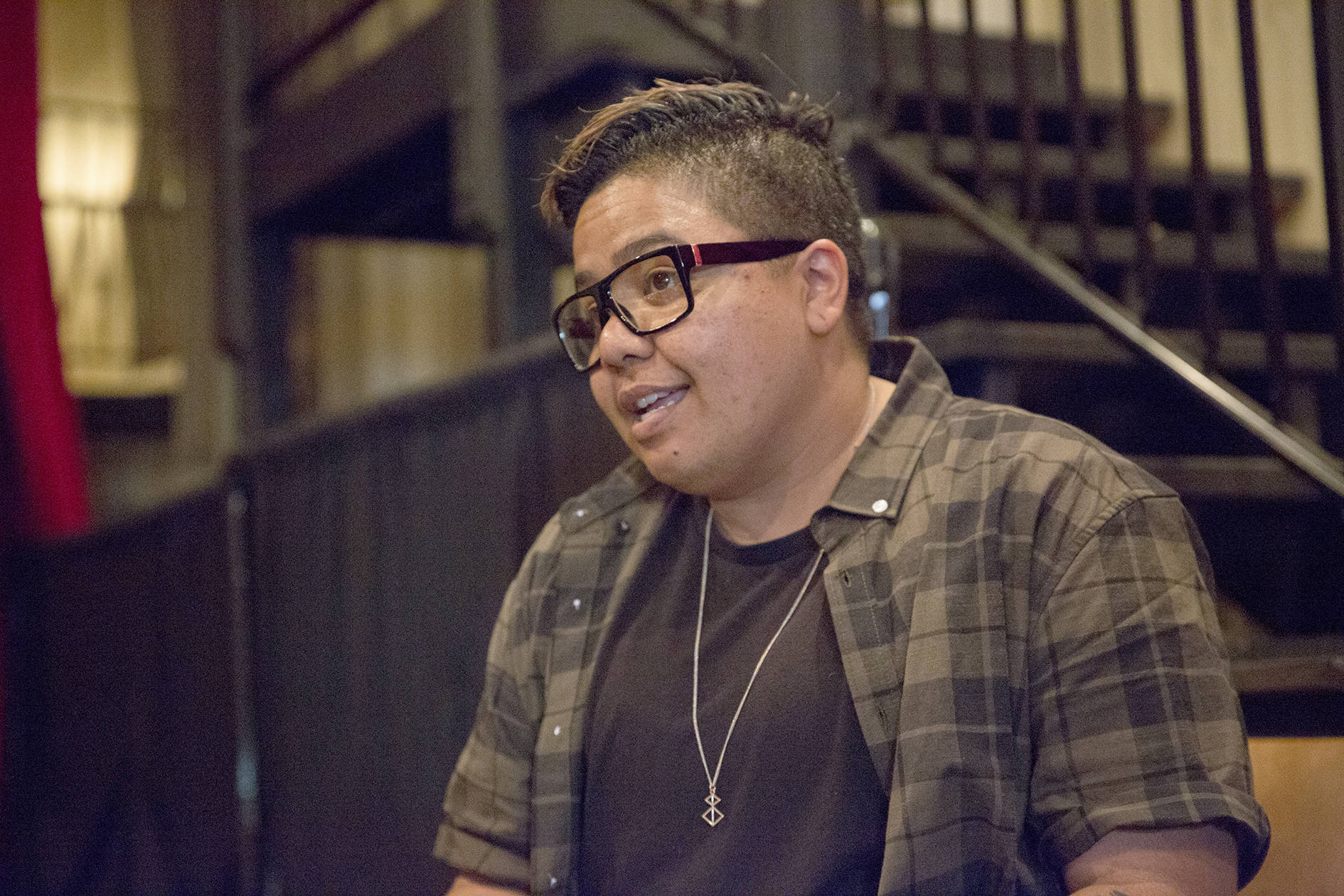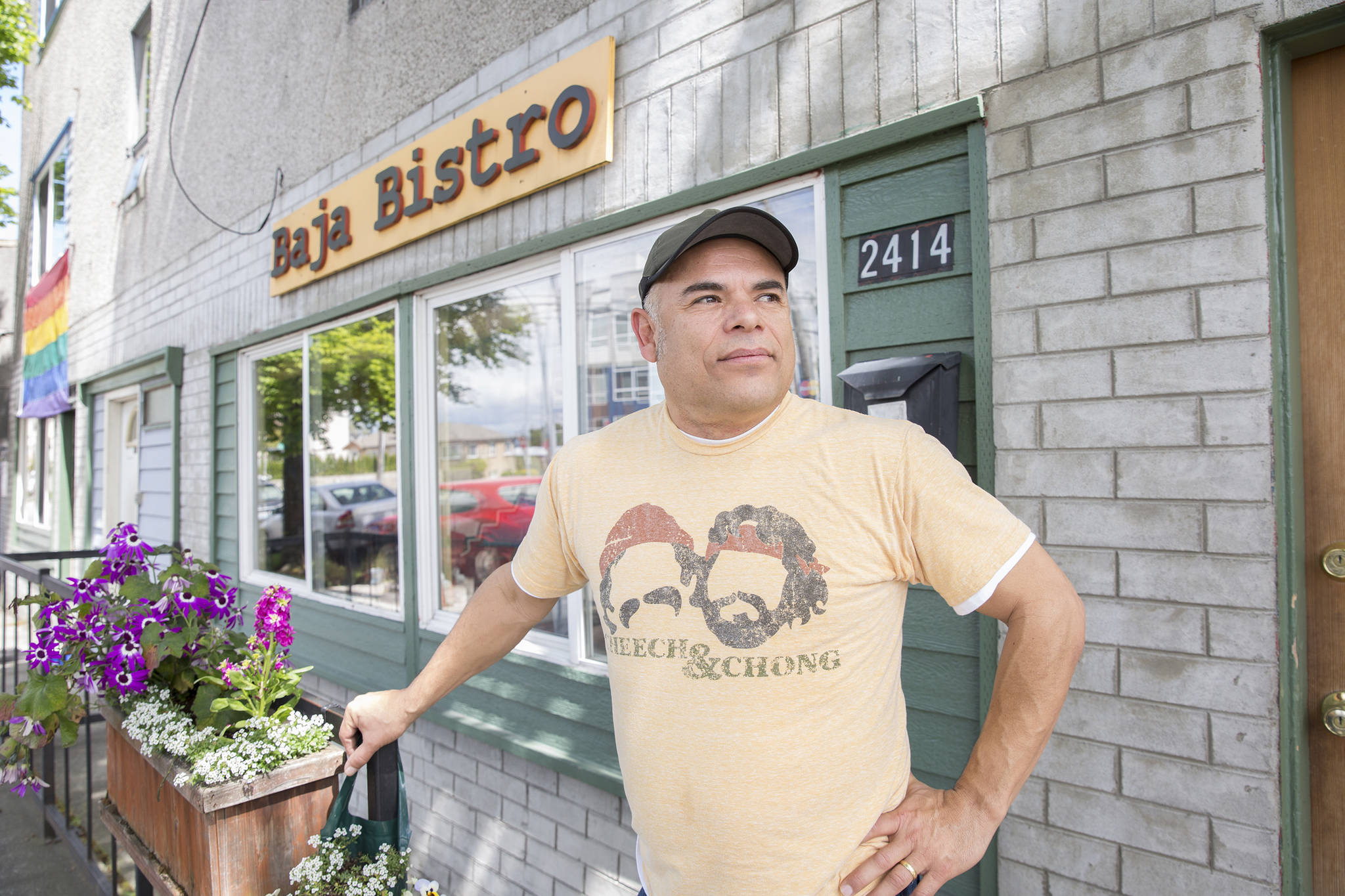Mac Scotty McGregor does not consider himself a politician. Even while running as the first transgender candidate for the Seattle City Council, Mac sees himself as primarily an activist, an educator, and a martial artist.
Originally from Florida, McGregor grew up Southern Baptist, and it has been a very long journey from there to the man he is today. “I knew very young that I didn’t fit into a binary system,” McGregor says. “Growing up in the Bible Belt, there wasn’t even the word ‘transgender.’ You certainly didn’t hear anything like that in church.”
McGregor’s history with the church is complicated. Though his true self was hidden largely because of its culture, he says the church has been too much a part of his life to leave behind. It was through his church, for instance, that McGregor worked as a children’s minister, traveling to Haiti eight times on missions. “I have always had a heart to help people,” he says. “It’s not like Seattle, where we have a million nonprofits. There it’s all through a church.”
McGregor also found a sense of belonging through martial arts, which he began studying when he was 6. “Martial arts gave me a positive place to be,” he says. “I was the kid they would kick out every night when they closed the doors of the dojo.” Now in his 46th year of study, McGregor holds a fourth-degree black belt in 17 different martial arts, was once on the U.S. karate team, and, prior to his transition, was the highest-ranking female martial artist in the world.
As part of his training, McGregor was required to teach. Education became another important part of McGregor’s life, and his love for it has affected more than just his fellow martial artists. “Teaching is my heart,” he says. “When I went through this journey and transitioned, I saw there’s a great need in the community for people who can communicate, because so few people understand it. It was easy for me to transition the skills I already have into a new area.” Using these skills, McGregor has become a lecturer on human sexuality at local colleges and universities and has developed a consulting business teaching corporations and police departments about identity awareness. “I’m not someone who walks around the world with a chip on my shoulder,” he says. “I get that everyone else is on a journey, trying to figure this out. I try to give them time to think.”
It was his unofficial role as “The Gender Sensei” of Seattle that led McGregor into politics. In 2011, Mayor Mike McGinn appointed him to the LGBT Commission; he served until 2016, when teaching and the thought of running for Seattle City Council became a focus. “That kind of gave me a bug,” McGregor says. “I was able to advise the mayor and City Council about issues that affect the community.” As a commissioner, McGregor pushed for transgender health care for all city employees and all-gender bathrooms for city buildings. “I’m a good negotiator,” he says. “I can talk to anyone from the president to the street guy. As a transgender person, I think it’s so important for those of us that can step forward to say, ‘No, we’re not going back in the shadows.’ ”
In his Council run, McGregor is facing an uphill battle as a trans candidate and one who refuses any party affiliation. The process has been eye-opening; McGregor believes the seat he is running for should be nonpartisan: “I started doing forums and endorsement events, and I kept being pulled by this group or that group to commit myself.” McGregor says he would like to be judged on his character and what he stands for, not the party he represents. “I think some people are loyal to party over their own individual integrity,” he says. “I won’t do that. But I’ll still fight for the things that we need in our lives.”
Whether or not he makes it past the August primary, McGregor—one of 11 transgender people running for office in the U.S. right now—says he is already seeing positive outcomes from his campaign. In particular, he recalls a moment at Pride Asia 2017: “After I spoke, a person comes up to me and says, ‘You inspire me so much. I’m just starting to transition. I always wanted to go into politics and never thought I could.’ I patted them on the shoulder and said, ‘You can do anything you want.’ ”
“There are people who say transgender people are mentally ill, there are people who say we can’t contribute anything to society,” McGregor adds. “We’re debunking those lies by just being ourselves and living out loud.”
news@seattleweekly.com
